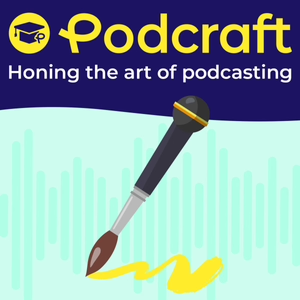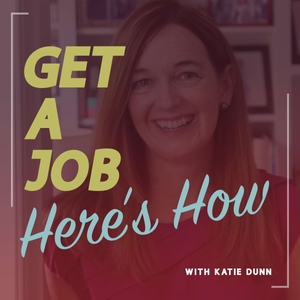
Episode 27: Future of Our Inshore Fisheries: One Year On
10/20/20 • 27 min
One year ago, we recorded our first ever episode live at the Future of Our Inshore Fisheries Conference. This landmark, inclusive event saw active fishermen, industry leaders, policy makers, regulators, researchers and a number of environmental groups come together in one place, to discuss the future management of the UK’s Inshore Fisheries.
This was a vital opportunity for real grassroots knowledge-sharing, where inshore fishermen were able to share their expertise and experience of fishing in the UK. There was an incredible energy in the room and an undeniable excitement around the possibility of collaborative action and change. Five key themes emerged, including co-management and collaborative science, resulting in a comprehensive report and action plan.
Now, a year later, we look back at this extraordinary moment with key members of the working group - Barrie Deas of the NFFO and Anne Freeman of Defra - to ask about what’s changed and see where we are now. In this upbeat and optimistic conversation, we ask Barrie and Anne how they feel about the elephant in the room - the global pandemic - and how this curveball has affected progress.
“This year was always going to be really hard, because of EU negotiations and preparation for the end of the Transition Period”, Anne states, “None of us foresaw Covid at that point and the terrible impacts that would have on the industry as a whole - particularly the inshore and the shellfish sector. But I think all this work that we have been doing has been really useful in helping the government to understand the sectors in more detail.”
Whilst there has been a delay in concrete, tangible progress, both guests point out that the year has seen a vital step in relationships being built between policy and industry, with the collaborative and communicative nature of the conference carving a clear pathway for future work.
“Covid has been a good example of co-management in the raw,” highlights Barrie. “The financial support package didn’t just fall out of the sky, it had to be fought for. It was a good example of the regulators and industry working together, on the basis of good information. That’s the essence of co-management!”
We reflect on how the energy and enthusiasm of last year’s conference might be re-mobilised after such a difficult year, ask what the Steering Group are doing, moving forward, for inshore fisheries, and discuss complex issues such as the Fisheries Bill, co-management, and quota allocation.
“What we’re doing here, at the moment, is creating a framework that will help us move forward”, explains Barrie. “We are making sure an inshore voice is heard, in everything we do”, continues Anne. It is key for fishermen to stay engaged in these discussions: at the heart of the conference was the need for industry-led change. Tune in for an update!
Fathom guests
Anne Freeman, Deputy Director, Domestic Fisheries and Reform, Defra Barrie Deas, CEO, NFFO
Relevant links
Future of Our Inshore Fisheries Report
One year ago, we recorded our first ever episode live at the Future of Our Inshore Fisheries Conference. This landmark, inclusive event saw active fishermen, industry leaders, policy makers, regulators, researchers and a number of environmental groups come together in one place, to discuss the future management of the UK’s Inshore Fisheries.
This was a vital opportunity for real grassroots knowledge-sharing, where inshore fishermen were able to share their expertise and experience of fishing in the UK. There was an incredible energy in the room and an undeniable excitement around the possibility of collaborative action and change. Five key themes emerged, including co-management and collaborative science, resulting in a comprehensive report and action plan.
Now, a year later, we look back at this extraordinary moment with key members of the working group - Barrie Deas of the NFFO and Anne Freeman of Defra - to ask about what’s changed and see where we are now. In this upbeat and optimistic conversation, we ask Barrie and Anne how they feel about the elephant in the room - the global pandemic - and how this curveball has affected progress.
“This year was always going to be really hard, because of EU negotiations and preparation for the end of the Transition Period”, Anne states, “None of us foresaw Covid at that point and the terrible impacts that would have on the industry as a whole - particularly the inshore and the shellfish sector. But I think all this work that we have been doing has been really useful in helping the government to understand the sectors in more detail.”
Whilst there has been a delay in concrete, tangible progress, both guests point out that the year has seen a vital step in relationships being built between policy and industry, with the collaborative and communicative nature of the conference carving a clear pathway for future work.
“Covid has been a good example of co-management in the raw,” highlights Barrie. “The financial support package didn’t just fall out of the sky, it had to be fought for. It was a good example of the regulators and industry working together, on the basis of good information. That’s the essence of co-management!”
We reflect on how the energy and enthusiasm of last year’s conference might be re-mobilised after such a difficult year, ask what the Steering Group are doing, moving forward, for inshore fisheries, and discuss complex issues such as the Fisheries Bill, co-management, and quota allocation.
“What we’re doing here, at the moment, is creating a framework that will help us move forward”, explains Barrie. “We are making sure an inshore voice is heard, in everything we do”, continues Anne. It is key for fishermen to stay engaged in these discussions: at the heart of the conference was the need for industry-led change. Tune in for an update!
Fathom guests
Anne Freeman, Deputy Director, Domestic Fisheries and Reform, Defra Barrie Deas, CEO, NFFO
Relevant links
Future of Our Inshore Fisheries Report
Previous Episode

Fathom 26: A reality check for the months ahead
As summer fades over the horizon and the crisp autumnal months begin to settle in, we take this transitional moment as an opportunity to take our busy Fathom schedule back to the quayside and touch base with the CFPO and our co-host Paul Trebilcock, to reflect and forecast.
We answer an array of fishermen's questions that have been bouncing around the quayside in recent weeks, focusing primarily on the turbulent political climate. As key changes such as the Fisheries Bill are seemingly being left down to the wire, our listeners would not be blamed for having questions about the future.
Wondering how Brexit is really going to pan out for the industry? Questioning what the three year transition period will look like? Want to know whether there is room for new measures to help maintain sustainable fish stocks? Curious about potential and emerging fisheries, such as Bluefin Tuna in the southwest? Speculating on what the industry might look like in 20 years? You are not alone.
Tune is we have a crack at answering some of your burning industry-specific questions - it’s time for a reality check!
Fathom Hosts
Paul Trebilcock
Chris Ranford
Next Episode

Fathom 28: Financial resilience in fishing communities
It’s been hard to ignore the eye-opening research released by Seafarers UK earlier last month. The landmark report, “Fishing Without a Safety Net: The Financial Resilience of Small-Scale Coastal Fishers, their Families and Communities”, revealed the precarious financial situation experienced by small-scale fishermen around the UK. Fluctuating incomes, difficulty budgeting, an inability to access affordable credit and an overburden of debt may all be painfully familiar for some.
In this episode of Fathom, we talk to Deborah Layde and Tina Barnes from Seafarers UK, to unravel the research behind the report, along with the key findings. Whilst this financial precarity is not reflective of the entire industry, it is vital that we don’t leave this part of the fleet behind, particularly as another lockdown is likely to exacerbate fishermen’s financial struggles.
Bleak findings have been met with urgent, innovative solutions: Seafarers UK have been quick to respond to the research, proposing a number of recommendations for individuals, charity and government to improve the financial resilience of small-scale fishermen and their families. These range from the centrepiece‘ share fisher plus cooperative approach’, to a national credit union, tailored specifically for the small-scale fleet. Wondering what on earth these things mean? Tune in!
The ‘Safety Net’ is still very much an active piece of work, and any ideas or comments from within the industry will be highly welcomed.
Fathom guests
Deborah Layde, Seafarers UK
Tina Barnes, Seafarers UK
Fathom host
Chris Ranford
Relevant links
Fishing Without a Safety Net reportFishing Without a Safety Net Webinar
If you like this episode you’ll love
Episode Comments
Generate a badge
Get a badge for your website that links back to this episode
<a href="https://goodpods.com/podcasts/fathom-getting-below-the-surface-of-the-uk-fishing-industry-431135/episode-27-future-of-our-inshore-fisheries-one-year-on-59151250"> <img src="https://storage.googleapis.com/goodpods-images-bucket/badges/generic-badge-1.svg" alt="listen to episode 27: future of our inshore fisheries: one year on on goodpods" style="width: 225px" /> </a>
Copy




